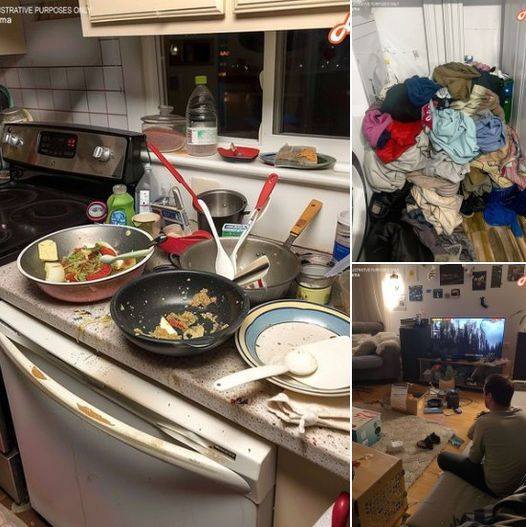
Maintaining a tidy home can feel like an uphill battle, especially when family members aren’t pitching in. But what if there was a way to turn the tide and get everyone involved? Let’s explore how to foster a cooperative environment where household chores become a shared responsibility.
The Importance of Shared Responsibilities
Why should everyone in the family participate in household chores?
- Promotes Teamwork: Working together on chores strengthens family bonds.
- Teaches Life Skills: Children learn essential skills they’ll need in adulthood.
- Reduces Stress: Sharing the workload prevents burnout for any single family member.
Identifying the Root Cause
Why are chores being neglected in your household?
- Lack of Clear Expectations: Unclear roles can lead to tasks being overlooked.
- Insufficient Motivation: Without incentives, chores may seem like a burden.
- Time Constraints: Busy schedules can make it challenging to find time for chores.
Implementing an Effective Chore System
How can you establish a chore routine that works for everyone?
- Create a Chore Chart: Assign specific tasks to each family member.
- Set Realistic Goals: Ensure chores are age-appropriate and manageable.
- Rotate Tasks: Keep things interesting by rotating chores regularly.
Incorporating Technology
Can technology help manage household chores?
- Chore Apps: Utilize apps to assign and track chores.
- Digital Reminders: Set up reminders to keep everyone on track.
Establishing Consequences and Rewards
How do you motivate family members to complete their chores?
- Reward System: Offer incentives like extra screen time or a special treat.
- Consistent Consequences: Implement fair consequences for neglected chores.
Leading by Example
Why is it important for parents to model good behavior?
- Sets a Standard: Children are more likely to follow suit when they see parents participating.
- Builds Respect: Demonstrates that everyone plays a role in maintaining the home.
Communicating Openly
How does communication impact chore management?
- Regular Check-Ins: Discuss what’s working and what’s not.
- Encourage Feedback: Allow family members to voice their opinions and suggestions.
Making Chores Enjoyable
Can chores be fun? Absolutely!
- Play Music: Create a lively atmosphere with upbeat tunes.
- Turn Tasks into Games: Introduce friendly competitions to complete chores.
Handling Resistance
What if family members resist participating?
- Stay Calm: Address resistance with patience.
- Understand the Why: Discuss underlying reasons for reluctance.
Adjusting the Plan as Needed
Is it okay to modify the chore system?
- Be Flexible: Adapt the plan to fit your family’s evolving needs.
- Celebrate Progress: Acknowledge improvements, no matter how small.
Conclusion
Transforming household chores into a shared family responsibility doesn’t happen overnight. It requires clear communication, flexibility, and a willingness to work together. By implementing these strategies, you can create a harmonious home where everyone contributes, and no one feels overwhelmed. Remember, a family that cleans together gleans together!





